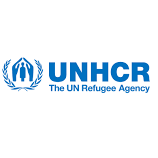Procedures and Eligibility
Before submitting an application, UNHCR staff members intending to apply to this Job Opening are requested to consult the Recruitment and Assignments Policy (RAP, UNHCR/HCP/2017/2 and the Recruitment and Assignments Administrative Instruction (RAAI), UNHCR/AI/2017/7 OF 15 August 2017.
Duties and Qualifications
Field Safety Adviser
ORGANIZATIONAL CONTEXT
The Field Safety Adviser takes on the role of leading, coordinating and providing appropriate guidance related to security management within an office.
The incumbent maintains contact with other UN agencies, NGOs, implementing partners, government partners in the area to facilitate the operation.
The incumbent directly supervises general service staff in the office, and reports to the Head of Office.
FUNCTIONAL STATEMENT
Accountability
- Country operations receive practical and well-reasoned security advice and support toward helping ensure an appropriate level of safety for UNHCR's staff and operations and compliance with security guidelines and procedures.
- UNHCR benefits from effective relationships with host country law enforcement agencies and the UN Security Management System.
- Staff are aware of threats/risks and how to respond to them, understand and comply with guidelines and procedures.
- Security management is efficient, well-coordinated and consistent with policies and procedures.
Responsibility
- Advise and support the Representative or Head of Office in managing staff safety and security of UNHCR staff, partners, operations, premises and refugees or persons of concern.
- Undertake periodic security assessments in close co-operation with UNHCR senior staff members and interagency partners, analysing security factors and levels of risk related to UNHCR activities and programmes.
- Evaluate existing security measures to determine their appropriateness and identify areas needing improvement. Follow up with actions to oversee or implement those improvements.
- Assist in ensuring compliance with Minimum Operational Safety Standards (MOSS) and Minimum Operational Residential Safety Standards (MORSS).
- Assist in the development of plans for evacuation, medical evacuation and other contingencies.
- In cooperation with UNHCR senior staff members, ensure that security measures are fully integrated into operational planning, including budgetary provisions, at the earliest stages of development.
- Participate and support in activities to advise on programme criticality assessment process.
- As a member of a multi-functional team, contribute to efforts to ensure the physical protection and security of refugees and other persons of concern by providing security assessments, analysis and advice in developing and implementing effective strategies which underpin the responsibilities of the host state.
- Develop and maintain relationships with security-related actors, including host government law enforcement authorities and other stakeholders to ensure effective information sharing; provide regular feedback and analysis to country managers.
- Maintain close co-operation with staff of the UN Department of Safety and Security (UNDSS), ensuring UNHCR's understanding of applicable requirements, cooperating in security assessments and planning and supporting UNDSS understanding of agency requirements.
- Support UNHCR staff serving as members of the country Security Management Team (SMT), or Area Security Management Team (ASMT), Area Security Coordinators (ASC) and Wardens.
- Provide country-relevant security advice and training to UNHCR staff, and where appropriate, to staff of NGOs and implementing partners in areas including, inter alia, preparation for and conduct of road missions, radio telecommunications and responding to specific threats within the environment.
- Conduct rehearsals and practical exercises to ensure that staff are familiar with contingency plans and can implement them confidently in an emergency.
- Prepare periodic analytical reports on security in accordance with UN and UNHCR standard operating procedures, sharing with managers in the country of assignment and FSS.
- Maintain linkages with the Staff Welfare Section, and the Medical Service, referring cases as required.
- Undertake other security-related functions or responsibilities as delegated by the supervisor.
Authority
- Provide security-related advice, in written and oral form, to the manager and other staff
- Advise on, and upon approval, implement, needed mitigating measures.
- Participate in criticality assessments.
- Represent UNHCR in interagency working groups and attend SMT or ASMT meetings as an observer.
ESSENTIAL MINIMUM QUALIFICATIONS AND PROFESSIONAL EXPERIENCE REQUIRED
- Undergraduate degree (equivalent of a BA/BS) with a focus on Security Management and/or related disciplines (Business Administration, Political/Social Science, International Relations) plus minimum 6 years of previous work experience relevant to the function including 2 years security risk management experience in an international capacity. Graduate degree (equivalent of a Master's) plus 5 years or Doctorate degree (equivalent of a PhD) plus 4 years of previous relevant work experience may also be accepted.
- Also relevant would be military or police academy degree (at Officer level).
- Excellent knowledge of English and working knowledge of another UN language.
(In offices where the working language is not English, excellent knowledge of UN working language of duty station ans working knowledge of English)
DESIRABLE QUALIFICATIONS & COMPETENCIES
- Proven competences in security analysis.
- Excellent communication skills, written and oral
- Negotiating skills
- Relevant training an asset
Position Competencies
C001L3 - Accountability Level 3
C002L3 - Teamwork & Collaboration Level 3
C003L3 - Communication Level 3
C004L3 - Commitment to Continuous Learning Level 3
C005L3 - Client & Result Orientation Level 3
C006L3 - Organizational Awareness Level 3
M001L3 - Empowering and Building Trust Level 3
M002L3 - Managing Performance Level 3
M006L3 - Managing Resources Level 3
M005L3 - Leadership Level 3
M003L3 - Judgement and Decision Making Level 3
M004L3 - Strategic Planning and Vision Level 3
X007L3 - Political Awareness Level 3
X001L3 - Analytical Thinking Level 3
X008L3 - Stakeholder Management Level 3
Additional Information
The UNHCR workforce consists of many diverse nationalities, cultures, languages and opinions. UNHCR seeks to sustain and strengthen this diversity to ensure equal opportunities as well as an inclusive working environment for its entire workforce. Applications are encouraged from all qualified candidates without distinction on grounds of race, colour, sex, national origin, age, religion, disability, sexual orientation and gender identity.
Desirable Attributes
Under the immediate supervision of the Head of Sub Office, the Field Safety Adviser posting in Kibondo needs to have good experiences in leading, coordinating and providing appropriate guidance related to security management within an office. The incumbent maintains contact with other UN agencies, NGOs, implementing partners, government partners in the area to facilitate the operation. His role is roving that covers Kibondo, Kigoma and Kasulu operations.
He/she has to ensure that country operations receive practical and well-reasoned security advice and support toward helping ensure an appropriate level of safety for UNHCRs staff and operations and compliance with security guidelines and procedures. The incumbent has to ensure that staffs are aware of threats/risks and how to respond to them, understand and comply with guidelines and procedures and ensure security management is efficient, well-coordinated and consistent with policies and procedures
Given the complex nature of the Sub Office, the incumbent needs to be a dynamic team maker, team player, motivated with proven security awareness. Therefore, good planning, managerial, leadership skills and maturity in communication and decision making are very essential attributes
Current Situation
Since the outbreak of civil unrest in Burundi in 2015, large numbers of refugees have fled to Tanzania, and many of them are expected to remain as long as the political situation in Burundi is unresolved. Meanwhile, refugees continue to flee from DRC, due to political tensions ahead of the presidential and legislative elections scheduled for 2018. All refugees who fled from Burundi from April 2015 were granted refugee status on a prima facie basis until 20 January 2017, when the Government of Tanzanian announced the lifting of the prima facie refugee status recognition for refugees and asylum-seekers from Burundi, calling for the resumption of individual refugee status determination. As of 2 February 2018, a total of close to 358,520 person of concern are engaged in Tanzania operation and around 164,163 are belongs to Sub-office Kibondo with in two camps namely Nduta (118,635) and Mtendeli (45,5248). UNHCR and its partners are closely coordinating with the Government of Tanzania, particularly the Refugee Services Department, the Ministry of Home Affairs and other Government departments, including Immigration, Border Management and Control and the Office of the Prime Minister at the national level.
Led by the Ministry of Home Affairs Refugee Services Department and UNHCR, the humanitarian response in the refugee camps in Kigoma Region, North western Tanzania, provides life-saving aid and key basic services. UNHCR continues to support the Government of Tanzania in ensuring access to territory and fair asylum procedures in accordance with international standards for all asylum-seekers in need of international protection.
Working and Living Conditions
UNHCR Kibondo is located within Kigoma region which is 250 kms away Kigoma City; 1400 kms away from Dar-es-Salaam. Most parts of the town are connected to the national electric supply. Water supply however is unreliable and is subject to rationing. Road travel by staff is limited to day movement (0700 ¿ 1830 hrs) as per the MOSS for all official missions in the region. There is a UNHCR-operated 10-seater caravan which flies two times a week between Mwanza/Kibondo/Kigoma. There are no suitable pre-schools, primary and secondary schools available and health facilities are very limited. Road transport from Kibondo to Kigoma requires armed police escort.
Security Considerations
UN Security is normal ( Level-2) and currently in place, which limits official and private road travel by staff as per the MOSS. All official missions in this region cannot begin before sunrise and no travel can take place after sundown. Police escorts are required as per MOSS for travel by road between Kibondo to Kasulu. Security escort is not required for travel from Kasulu to Nyarugusu or to Kigoma Town.
Additional Factors
Qualified and experienced female candidates are particularly encouraged to apply. Field trip for security monitoring and intervention is basic requirement for the duties and responsibility of this post.
The incumbent needs to have a practical knowledge in security management approaches. Good previous exposure to multi-facetted operational dynamics, and able to provide security-related advise and coordinates well with the Staff Welfare Section and the Medical Service. He/she should possess good computer and language skills in English and French (basic) for report submission is necessary.

